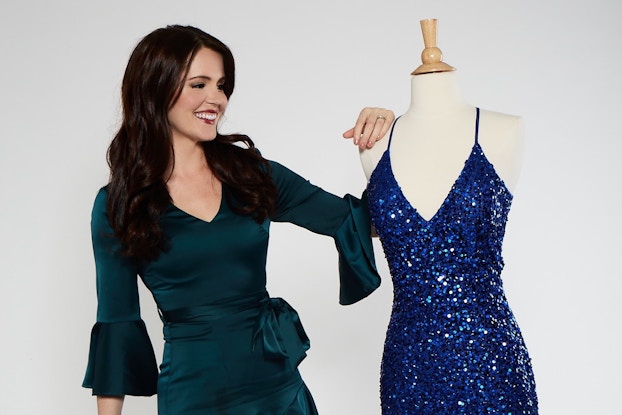
Marissa Tilley discovered her passion for formalwear amid jobs in her 20s that left her disengaged and unenthused.
“I would look at the clock waiting for it to say 5 p.m.,” she said. “I started questioning my workday and taking some self-inventory — ‘Is this how I want to be spending my days?’”
Tilley daydreamed of escaping and doing something fun throughout the day. That’s when she started working on the business plan for Lady Black Tie, a Massachusetts-based formal dress company that she would end up launching in 2018.
Soon enough, the boredom Tilley felt in her old jobs melted away as energy and excitement overtook her and helped her new business to thrive.
“I get so engaged with what I’m working on that I don’t realize how many hours have passed until my husband reminds me how late it is,” Tilley told CO—. “This was the ‘a-ha!’ moment when you know you’re in the right place. Running a business truly becomes a lifestyle, and if you love what you do, it doesn’t feel like work at all.”
[Read more: 10 Clothing-Inspired Small Business Ideas]
Approach competition as motivation
Tilley encourages new business owners to avoid getting discouraged by the existing competition in a chosen field.
“When I started Lady Black Tie, there were already plenty of established formalwear stores in my area, and tons of online retailers with millions of social media followers,” she said. “I, however, was starting from zero.”
Don’t let the brands that have been around longer than you intimidate you and keep you from starting. If anything, use this competition as motivation and recognize that you can bring a fresh perspective and new ideas to the industry.
Marissa Tilley, Founder, Lady Black Tie
In her eyes, though, the market is never too crowded for a new player.
“Don’t let the brands that have been around longer than you intimidate you and keep you from starting,” she says. “If anything, use this competition as motivation and recognize that you can bring a fresh perspective and new ideas to the industry.”
For fashion entrepreneurs specifically, Tilley explained that it's not a winner-take-all market — even if it might seem that way sometimes. As she puts it, big-time fashion websites “can't have every idea and design.”
As a small brand, entrepreneurs can make it in the industry and scale incredibly fast when they fill a niche, commit to the business’s mission, and listen to consumers.
“It only took a couple months of operating and we started outselling our storefront,” Tilley said. “We took the feedback we received about our styles and used that to offer more styles.”
Pivot to what works
Like many other businesses, Lady Black Tie faced challenges as the pandemic shut down in-person shopping and events. However, Tilley’s established process of reinvesting profits into growth helped carry Lady Black Tie through uncertain times.
“Anything that appeared to be working I doubled down on and kept expanding slowly,” she explained. “With events canceled, we adapted to serve the market for elopement and small wedding dresses — typically white dresses at a lower price point.”
After restrictions lifted, Tilley and her team went back to what they do best: continue to satisfy consumer demand for beautiful, unique formalwear.
“There has been a very strong demand for formalwear since March 2021 and we have expanded rapidly,” she noted.
[Read more: How Slow Fashion Is Creating Opportunities for Startups and Legacy Brands Alike]
CO— aims to bring you inspiration from leading respected experts. However, before making any business decision, you should consult a professional who can advise you based on your individual situation.
Follow us on Instagram for more expert tips & business owners’ stories.
CO—is committed to helping you start, run and grow your small business. Learn more about the benefits of small business membership in the U.S. Chamber of Commerce, here.







